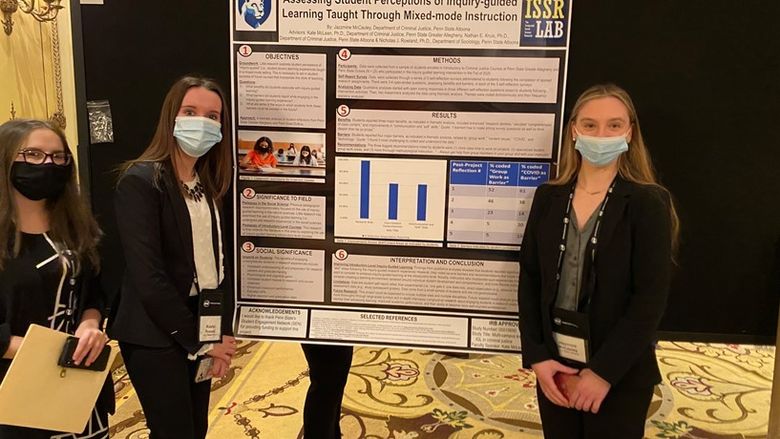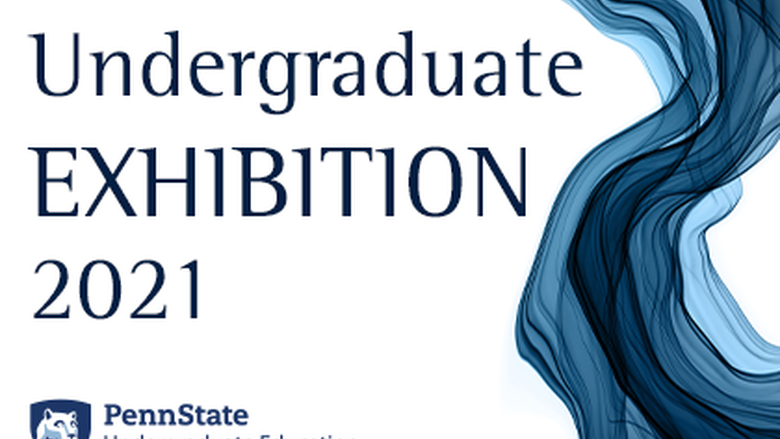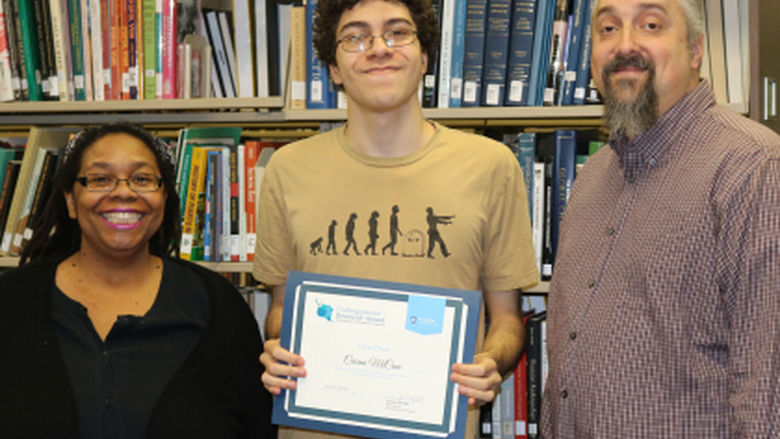Penn State Greater Allegheny Professor Kristal Tucker, second from left, with students exploring undergraduate research.
MCKEESPORT, Pa. — Penn State Greater Allegheny, located in McKeesport, Pennsylvania, is investing in the next generation of researchers.
Penn State Greater Allegheny professors Megan Nagel, associate professor of chemistry, and Kristal Tucker, assistant professor of biology, are helping to make this happen by bringing course-based undergraduate research experiences (CUREs) to campus.
CUREs have been earning increased attention in higher education, as the experience allows large numbers of students to reap the benefits of an authentic research experience. Nagel and Tucker are interested in working with undergraduates in the laboratory, and after discussing the ways their research interests could intersect, they began to develop their own interdisciplinary course-based research model.
Nagel and Tucker want to move away from the typical “cookbook” experiments with this program, instead they want to be more open and individualized with the research for their students.
“In a 'cookbook' experiment, the question being explored is generally the same for every student in the class, provided by the instructor, and has a known and predictable outcome. True science does not work like that,” stated Nagel. “While we will be guiding students, they will be developing their own research questions, those that have not been explored, and don’t yet have an answer.”
In general, projects in their new course will allow students to gain true research experience by isolating or modifying chemical compounds, testing these compounds on a medically relevant cell line, and then monitoring any resultant changes in cellular morphology.
Traditionally, undergraduate research experiences are offered to top-performing upperclassmen. Nagel and Tucker are using the CURE approach to extend the benefits of a research experience to a wider audience.
Their vision is to serve as many interested students as their space can support, building a collaborative community of young researchers.
“One way that freshmen and sophomores, a group of students heavily represented on our campus, would benefit from a research experience is by observing how skills acquired in foundational STEM (science, technology, engineering and math) classes such as math, chemistry, physics and biology are used on a daily basis and how they fit into the bigger picture,” said Tucker. “With a new appreciation for the foundational STEM classes, we hope to inspire more students to pursue STEM fields.”
Furthermore, Nagel and Tucker are hopeful that this program will help students succeed in the future by offering a wide array of skills for them to utilize outside of the classroom.
“Beyond the resume-building technical skills that are offered by a research experience, a number of soft skills will also be targeted,” stated Tucker. “These include: trouble shooting, multitasking, time management, responsibility and teamwork.”
The CUREs offering is inspiring students to engage in science by conducting research on campus. This research provides Greater Allegheny students with a transformative experience through a hands-on interactive learning environment.




